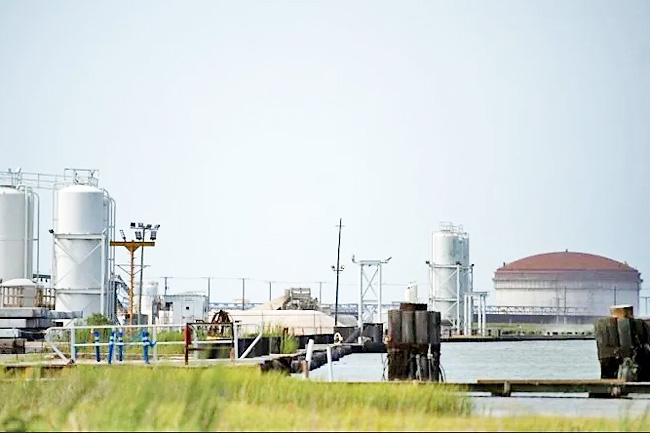HOUSTON (AFP) – Two years ago, the American liquified natural gas (LNG) company Tellurian was in free fall: Its stock price collapsed, it laid off 40 per cent of its staff, and suspended a key project in Louisiana.
Now, Executive Chairman Charif Souki said investors “are lining up at the door to ask me: ‘Can we finance your project?'”
At the annual CERAWeek energy conference in Houston, Souki told AFP that LNG projects have been boosted by the renewed emphasis on energy independence after Russia’s invasion of Ukraine.
“Global market demand and the desire of the Europeans to divest from their reliance on Russian gas… those are all positive market signals, which will obviously help stimulate those projects and get them moving towards final investment decisions,” said Vice President of the natural gas industry’s advocacy group Charlie Riedl.
On March 8, the United States (US) banned all imports of LNG, petroleum and coal from Russia, and has for years encouraged its European allies to decrease their dependence on their eastern neighbour.

The White House, in a statement, also argued that “federal policies are not limiting the production of oil and gas”.
“To the contrary, the Biden administration has been clear that in the short-term, supply must keep up with demand,” it added.
Eight LNG terminals operate in the US, pumping out 14 billion cubic feet per day, and 14 other terminals have already been approved by the Federal Energy Regulatory Commission (FERC).
That’s the case for Driftwood LNG, Tellurian’s future liquefaction plant and export terminal, south of Lake Charles, Louisiana.
Stalled for a year and a half, the company will finally break ground on the massive project next month. Once completed, the site will be able to export 3.6 billion cubic feet per day.
Charif said that “in principle, we should be able to provide LNG in 2026” to the oil companies Shell, Vitol and Gunvor. The Gulf Coast will see plant construction accelerate in the coming months: Five projects have already been approved by FERC in Louisiana, with seven more in Texas and Mississippi.
Since its first exports in 2016, the Gulf Coast has become a key hub for global LNG shipments.
A network of pipelines connects the states’ ports to gas fields across the country, from the Permian and Haynesville basins in the south to the Marcellus, the country’s largest onshore reserve, in the northeast.








